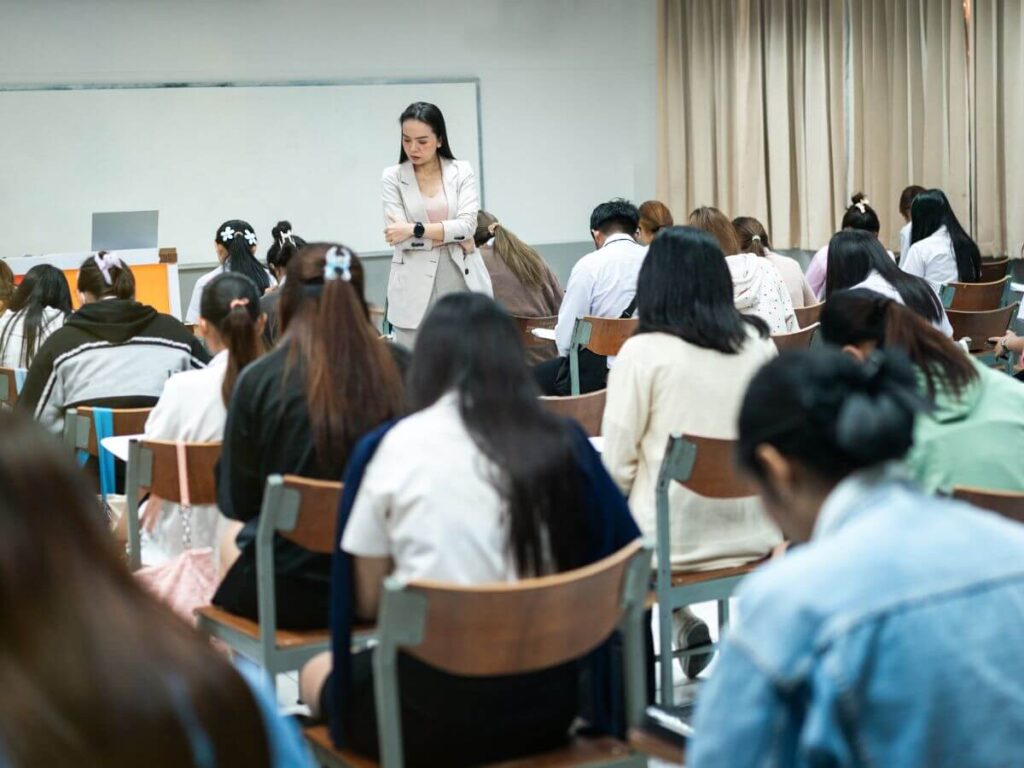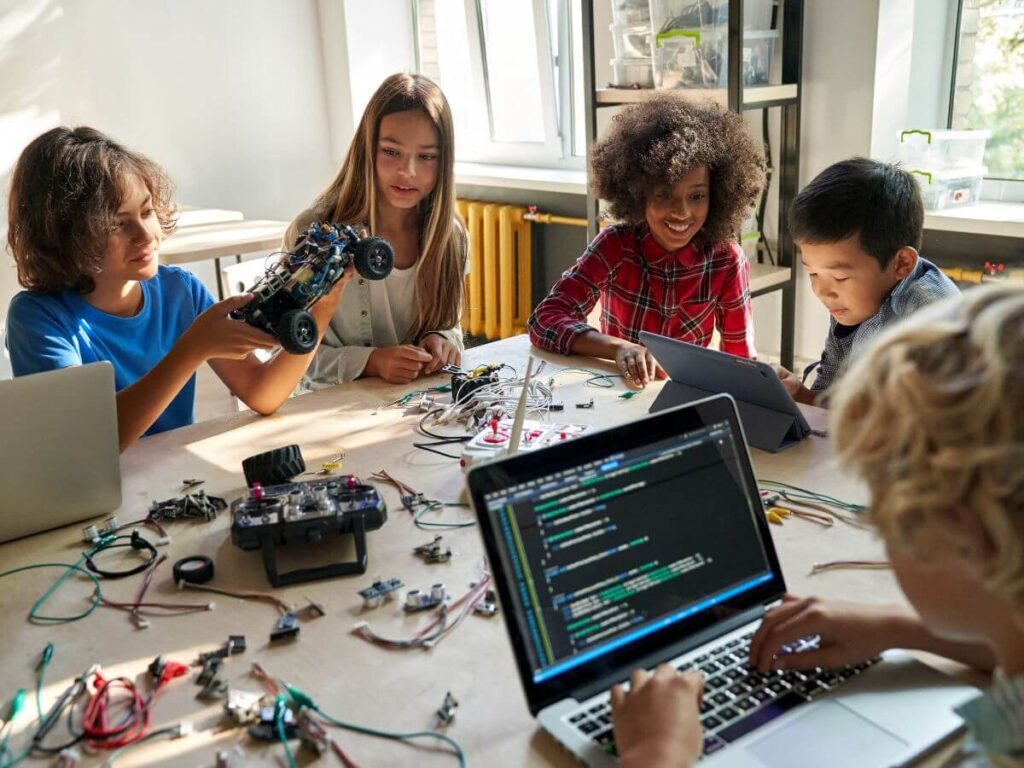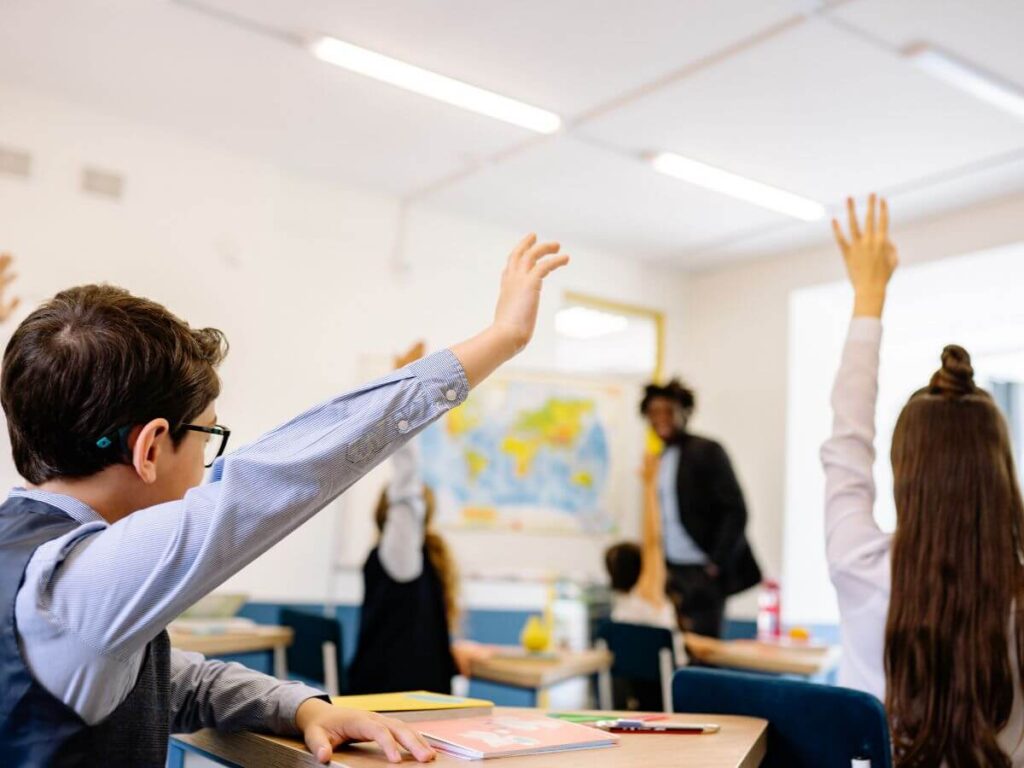
Top 9 In-Class Activities That Improve Children’s Concentration
Concentration is fundamental to children’s academic success and cognitive growth. Through carefully designed classroom activities, teachers can help students develop stronger focus and engagement in learning. Discover practical, evidence-based activities that enhance children’s concentration skills while making learning more effective and enjoyable.

What is Children’s Concentration Ability?
The ability to concentrate is understood as the ability to maintain attention on a specific activity or task for a certain period of time. It requires a combination of immediate concentration and long-term patience.
Average Concentration Ability by Age Group:
- Children 4-5 years old: About 5-10 minutes.
- Children 6-8 years old: About 10-20 minutes.
- Children 9-12 years old: About 20-30 minutes.
Difficulties in Concentration such as:
- Children are often distracted by external factors.
- Children cannot complete assigned tasks.
- Showing insecurity or lack of concentration when studying.
Optimal learning environment conditions
To create an optimal learning environment, helping children increase their ability to concentrate, it is necessary to consider and adjust the following factors:
- Setting up a Distraction-Free Space: A quiet space, free of noise and distractions such as phones or conversations is a basic condition to help children concentrate better.
- Arranging Materials and Resources: Ensuring that learning materials, books, and necessary tools are neatly organized and easily accessible will help children focus better on the task.
- Lighting and Ventilation: Natural light combined with a suitable lighting system helps reduce eye strain and increase alertness. The learning space needs to be well-ventilated to provide enough oxygen, create a comfortable feeling, and increase the ability to concentrate.
- Classroom Colors and Decorations: Using soft, elegant colors in the classroom can create a pleasant feeling, reduce stress, and increase the ability to concentrate. Avoid using too many bright colors or excessive decorations, as this can distract children.
- Temperature and Humidity: Maintaining a comfortable temperature and humidity will help children not feel uncomfortable, thereby focusing more on learning. Temperatures that are too high or too low can negatively affect the ability to concentrate.
- Using Soft Music: In some cases, playing soft background music can help children relax and concentrate better. However, it is necessary to choose the right type of music and ensure that the volume is not too loud to avoid distraction.
- Designing Flexible Learning Spaces: Creating different learning areas in the classroom, such as reading corners, and group discussion areas, helps children change their learning space, reduce boredom, and increase concentration.
Paying attention to the above factors will contribute to creating an ideal learning environment, supporting children to develop their ability to concentrate and achieve better learning results.
Explore More Teaching Tips: Teaching Students to Respect Different Cultures Through Proven Methods
Classroom Activities for Better Concentration

Games to Practice Concentration
Games designed to improve concentration not only entertain children but also develop skills necessary for learning. These games provide opportunities for children to practice their memory, logical thinking, and ability to process information in different situations.
- Memory-based activities: Games such as “Memory” or “Math Simon Says” help children develop their ability to remember and focus on specific details.
- Pattern recognition: Sudoku or category recognition exercises are fun ways to practice concentration and logical thinking.
- Sequential thinking: Games like “Word Chain” or “One Word Story” require children to think and track information in a specific order.
Movement-Based Activities
Movement activities not only help children release energy but also help improve their concentration. When children do movement exercises, they learn to adjust their bodies and coordinate their actions, thereby increasing their attention and self-control.
- Balance exercises: Activities like standing on one leg or walking on a line help children improve their body control and concentration.
- Walking exercises: Organize guided walking activities to help children move while focusing on specific instructions.
- Red Light Green Light: This game is not only fun but also helps children learn to control their behavior and focus on signals.
Problem-Solving Activities
Problem-solving is one of the important skills that help children develop logical thinking and concentration. These activities not only encourage children to find solutions but also practice patience and the ability to focus on a specific goal.
- Puzzles and brain teasers: Solving simple puzzles helps children develop analytical and concentration skills.
- Code decoding: This activity stimulates creative thinking and encourages children to focus on finding solutions.
- Math Bingo: A fun game to combine math learning with concentration training.
Discover Related Guides: Using Podcasts in the Classroom: A Comprehensive Guide 2025
Implement Concentration Strategies

Implementation strategies play an important role in ensuring that concentration activities are implemented effectively. A good strategy should consider the individual characteristics of children and create conditions for them to maximize their abilities.
- Choose age-appropriate activities: Make sure activities are designed to match your child’s abilities and interests to keep them interested. This will help prevent them from feeling overwhelmed or bored.
- Progression and difficulty level: Start with simple tasks and gradually increase the difficulty so that your child feels successful and challenged. This not only encourages confidence but also helps your child maintain interest over the long term.
How to Incorporate Activities into Your Daily Routine
To ensure your child maintains their concentration for a long time, activities need to be integrated naturally into their daily routine. This helps them build consistency and is easy to apply in multiple contexts.
- Scheduled activity blocks: Plan activities to focus on times when your child has the most energy, such as in the morning or after recess. A clear schedule helps your child form a routine and optimizes learning efficiency.
- Combine different types of activities: Alternate between static and dynamic activities to keep children focused and not bored. Diversity in activities also helps children develop comprehensively both physically and mentally.
Increasing children’s ability to concentrate depends not only on the learning environment but also on creativity in organizing activities. Applying the above strategies flexibly will help children develop their ability to concentrate and achieve higher learning efficiency. Good luck!






